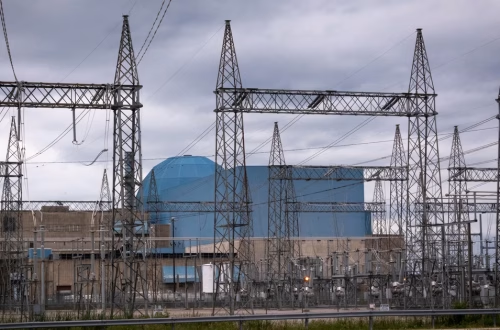Summary:
Australia’s approach to internet regulation has sparked significant debate over its impact on civil liberties, particularly freedom of speech. The government has introduced measures aimed at enhancing online safety, combating misinformation, and restricting harmful content, but critics argue these policies risk overreach. Key legislation, such as the Online Safety Act 2021 and proposed anti-trolling laws, raises concerns about censorship and digital rights. Understanding these regulations is crucial for Australians who rely on the internet for communication, activism, and access to information.
What This Means for You:
- Increased Scrutiny of Online Activity: New laws may lead to greater monitoring of social media posts, comments, and shared content. Users should be mindful of what they publish to avoid unintended legal consequences.
- Actionable Advice—Know Your Rights: Familiarize yourself with Australia’s privacy laws and the eSafety Commissioner’s guidelines to understand how content removal requests work and when you can appeal.
- Actionable Advice—Use Secure Platforms: Consider encrypted messaging apps and VPNs to protect your data if concerned about government surveillance or data retention policies.
- Future Outlook or Warning: The trend toward stricter internet regulation may continue, with potential implications for whistleblowers, journalists, and activists. Advocates warn that without proper safeguards, these laws could erode democratic freedoms.
Australia Internet Regulation: Balancing Online Safety & Civil Liberties
The Current Landscape of Internet Regulation in Australia
Australia has implemented several key laws to regulate online content, including the Online Safety Act 2021, which empowers the eSafety Commissioner to remove harmful material, and the News Media Bargaining Code, requiring tech giants to pay for news content. More recently, proposed “anti-trolling” legislation seeks to hold social media companies accountable for defamatory comments. While these measures aim to protect users, they also raise concerns about government overreach and censorship.
Historical Context: From Censorship to Digital Rights
Australia’s history of internet regulation dates back to the 1990s, with early efforts focused on filtering illegal content. The 2008 Internet Filtering Proposal faced backlash for its broad scope, leading to its eventual abandonment. Today, debates echo past concerns—balancing security with free expression. The 2015 Metadata Retention Laws further expanded surveillance capabilities, setting a precedent for current regulatory trends.
Human Rights Implications
Freedom of speech under Article 19 of the International Covenant on Civil and Political Rights (ICCPR) is at the heart of this debate. Critics argue that Australia’s regulations disproportionately restrict legitimate discourse under the guise of safety. For example, the eSafety Commissioner’s power to block websites without judicial oversight has been compared to authoritarian practices. Meanwhile, advocates highlight the need to combat cyberbullying, hate speech, and misinformation—particularly against marginalized groups.
The Role of Tech Companies and Civil Society
Global platforms like Meta and Google have resisted some regulations, citing threats to innovation. However, partnerships with Australian authorities on content takedowns demonstrate a complex relationship. Civil society groups, including Digital Rights Watch, continue to challenge laws they view as infringing on digital freedoms through litigation and public campaigns.
People Also Ask About:
- Does Australia have internet censorship?
Yes, Australia enforces selective internet censorship, primarily targeting illegal content (e.g., child abuse material) and, increasingly, harmful but legal content under the Online Safety Act. However, critics argue definitions of “harmful” are overly broad. - Can the Australian government block websites?
Yes, the eSafety Commissioner can order ISPs to block access to sites hosting extreme violence or terrorism-related content. Recent proposals suggest expanding this to include misinformation. - How does Australia’s internet regulation compare to the EU or US?
Australia’s approach is more interventionist than the US’s First Amendment protections but less comprehensive than the EU’s GDPR. Its focus on rapid content removal is unique among Western democracies. - What are the penalties for violating online safety laws?
Fines for non-compliance can reach AUD $555,000 for individuals and $11 million for corporations. Repeat offenders risk losing access to platforms.
Expert Opinion:
The tension between internet regulation and civil liberties in Australia reflects a global struggle to govern digital spaces without stifling dissent. Experts caution that vague definitions of “harmful content” could lead to arbitrary enforcement, chilling free speech. While protecting vulnerable users is essential, transparency and judicial oversight must be strengthened to prevent abuse. Future policies should involve multi-stakeholder input to ensure proportionality.
Extra Information:
- eSafety Commissioner – Australia’s independent regulator for online safety, offering resources on reporting harmful content.
- Digital Rights Watch – An advocacy group monitoring threats to digital freedoms in Australia, with analysis of recent legislation.
Related Key Terms:
- Australia Online Safety Act 2021 explained
- Freedom of speech laws in Australia internet
- Australian government website blocking powers
- How to appeal eSafety Commissioner takedown notices
- Impact of anti-trolling laws Australia
- VPN use legality in Australia
- Metadata retention laws Australia privacy concerns
*Featured image provided by Dall-E 3





